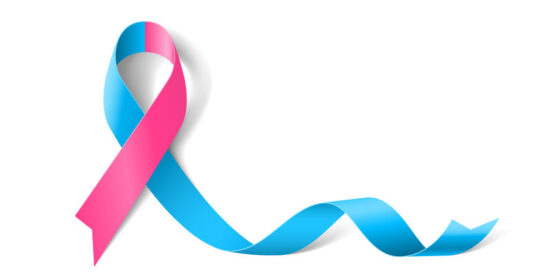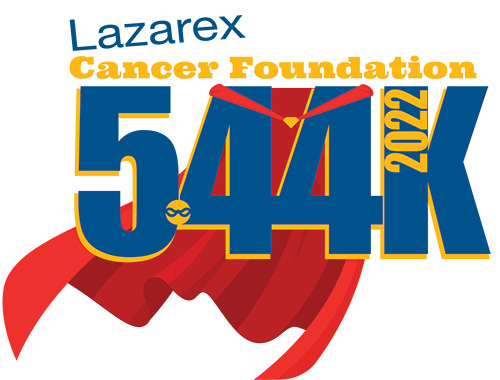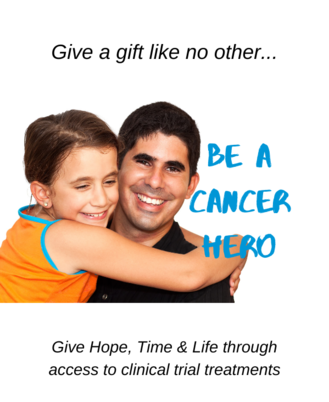I am realizing that men can and are diagnosed with breast cancer, and when it happens the compassion in breast cancer treatment is often ignored.
By Marya Shegog, PhD, MPH, CHES: Health Equity and Diversity Coordinator, Lazarex Cancer Foundation
We all know the pink ribbon, what it means and stands for, and I am betting many of us know at least one person who has had breast cancer. The pink ribbon is one of the best marketing and awareness campaigns created in the history of cancer education, research and trials. It is estimated that one in eight women will develop breast cancer over the course of her lifetime (BreastCancer.org, 2021). There have been great strides in breast cancer screening and treatment, and many are tied to the conversation around the pink ribbon.
There are racial and ethnic disparities in breast cancer, however the one disparity that is least talked about is related to gender disparities. It was expected that out of the 333,490 newly diagnosed breast cancer cases in 2021 2,650, approximately 1% of all breast cancer cases in the U.S., would occur in men (BreastCancer.org, 2021). The lifetime risk for men in the U.S. is 1 in 833 (BreastCancer.org, 2021). I am not comparing the risk and diagnosis of breast cancer among men and women but realizing that men can and are diagnosed with breast cancer, and when it happens the compassion in breast cancer treatment is often ignored.

In a qualitative study I conducted not too long ago I had the opportunity to analyze many stories from male Breast Cancer Survivors or stories told by their care givers. (The Male Breast Cancer Coalition , 2013). These stories shed a light on the imbalance of treatment. The founder of the Male Breast Cancer Coalition, Bret Miller tells his story where the lump was detected 7 years prior to him being diagnosed. He was told by his doctor that it was a “calcium build up… you’re becoming a man… it would go away” however it never did. Throughout his account there appears to be a lack of empathy for him as a young man diagnosed with a terrible disease. When he was finally diagnosed there was no compassion given to him about his diagnosis. He was able to receive treatment and has dedicated his life to spreading the word through the Male Breast Cancer Coalition.
Men being diagnosed with breast cancer is not a new phenomenon. Sam Rivera, was diagnosed with breast cancer in 1971 at the age of 18 as a member of the U.S. military. Not only did he have genetic links that increased his risk of breast cancer, he would later find out that his grandfather had been treated for breast cancer. His story, which is now almost 50 years old, still reveals that the understanding around breast cancer among men has not improved.
Raymond Johnson was diagnosed with Breast Cancer at the age of 26 in South Carolina. If that is not scary enough, when seeking medical support for treatment, he was repeatedly told that in order to qualify he either had to be a woman or have had additional testing like a pap smear prior to receiving financial support for his breast cancer (Chan, 2011). His gender even made him ineligible to receive support through the federal Breast and Ovarian Cancer Treatment program. Luckily, he was able to receive treatment and lived to tell his story, but not without significant media attention and in his own words; “Faith, Heart and Humor” (Johnson, 2014)
After analyzing more than 100 accounts of breast cancer among men the greatest commonality was stigma. Men who had to receive mammograms report being bruised and, in a few cases, cut by the mammogram machines only to be given pink flower ice packs to be placed in their “bras.” Or being asked by friend, family and colleagues “What kind of man are you?” as if they opted to have breast cancer. There are accounts where men were denied treatment because the insurance companies “did not support sexual reassignment” or were simply dropped from their coverage. The stories are endless, and some will make you cry while others will make you laugh, but what is made clear by each story is that men, and many of the expected 2,650 men in 2021 who will be diagnosed with breast cancer will receive dehumanizing treatment that encourages shame and stigma instead of healing and hope.
Dr. Marya Shegog’s bio can be found here.
Works Cited
BreastCancer.org. (2021, February 4). U.S. Breast Cancer Statistics. Retrieved from BreastCancer.org: https://www.breastcancer.org/symptoms/understand_bc/statistics
Chan, A. (2011, October 8). Raymond Johnson Denied Federal AID For Breast Cancer Because He’s a Man. Retrieved from HUFFPost: https://www.huffpost.com/entry/raymond-johnson-breast-cancer-man_n_921016
Johnson, R. (2014, February). The Male Breast Cancer Coalition . Retrieved from Survivor Stories : https://malebreastcancercoalition.org/Survivor%20Stories/raymond-johnson/
The Male Breast Cancer Coalition. (2013). Survivor Stories . Retrieved from The Male Breast Cancer Coalition : https://malebreastcancercoalition.org/




